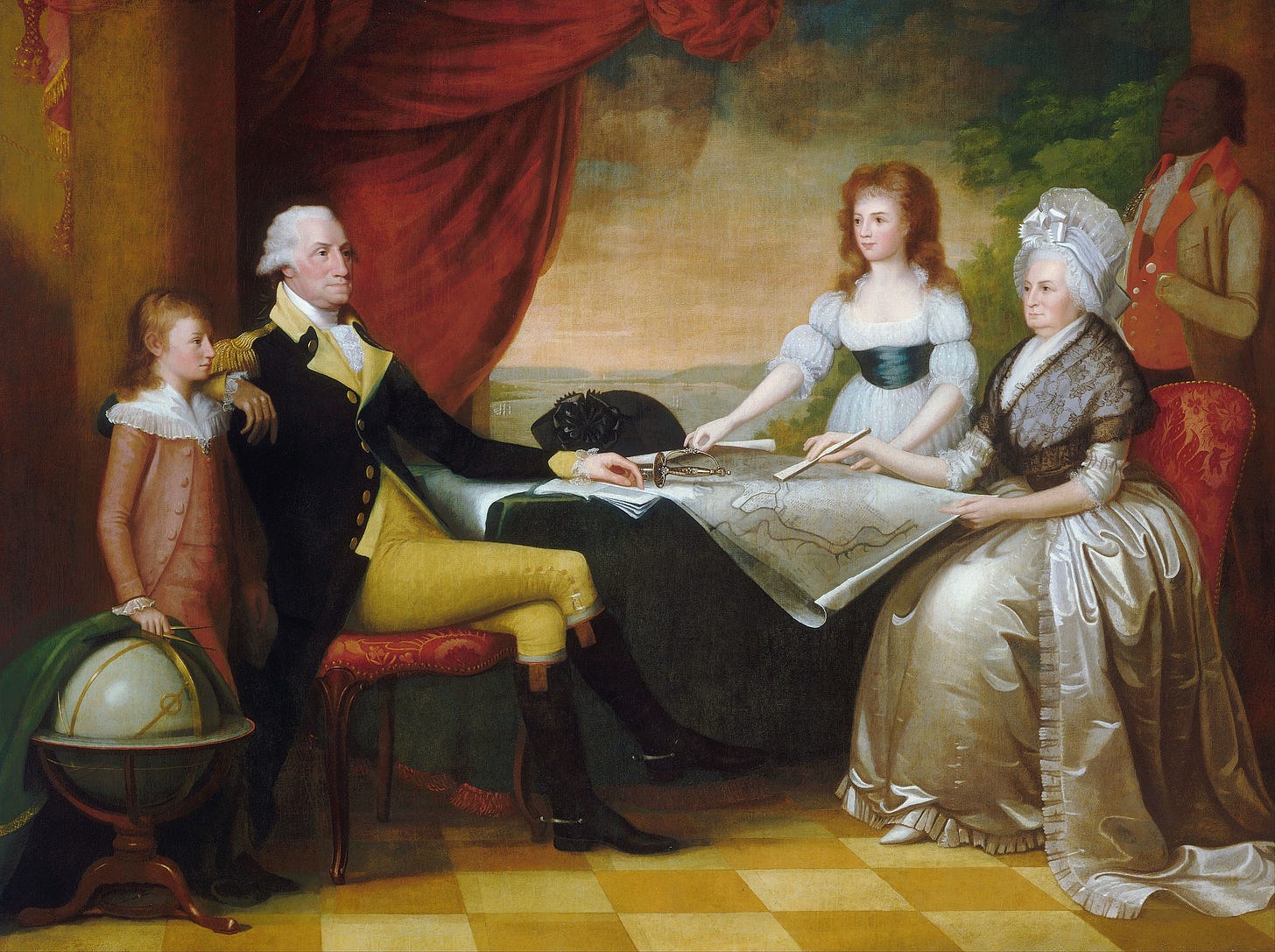Washington the Deist
Note: I’m going to cross-post this to my new Freethought History substack, where today I also posted an essay on the many biographies of Thomas Paine that have been written in the two centuries since his death. People who read my history stuff here may find it interesting.
Although it’s not necessarily the biggest topic among academic historians, it’s probably fair to say that for the rest of Americans, one of the biggest ongoing historical controversies is whether the United States is a “christian nation,” established by religious people to conform with the teachings of their faith.
This debate has been going on for generations. It’s not my top priority as a historian, but I do find it interesting. So here’s something I ran into a while back, regarding George Washington. It’s from an 1876 book called The World's Sages, Infidels, and Thinkers : being biographical sketches of leading philosophers, teachers, reformers, innovators, founders of new schools of thought, eminent scientists, etc., by D. M. Bennett. The quoted text appears on pages 503-505, and as a bonus, it cites Robert Dale Owen — one of my favorite freethinkers of the early 19th century:
Touching "Washington's religious views, Thomas Jefferson wrote as follows in his journal of 1800 [Jefferson's Works, Vol. iv. p. 512]: "Dr. Rush told me he had it from Asa Green that when the clergy addressed General Washington on his departure from the Government, it was observed in their consultation that he had never on any occasion said a word to the public which showed a belief in the Christian religion, and they thought they should so pen their address as to force him at length to declare publicly whether he was a Christian or not. They did so. However, he observed, the old fox was too cunning for them. He answered every article of their address particularly, except that, which he passed over without notice. Rush observes he never did say a word on the subject in any of his public papers, except in his Valedictory letters to the Governors of the States, when he resigned his commission in the army, wherein he speaks of the benign influence of the Christian religion. I know that Gouverneur Morris, who claimed to be in his secrets and believed himself to be so, has often told me that General Washington believed no more in that system than he himself did." (And Gouverneur Morris was a well-known unbeliever and an intimate friend of Washington.)
In the Albany "Daily Advertiser," of October 29, 1831, was published a sermon by the Rev. Dr. Wilson of that city, in which occurred the following paragraph : — "Washington was a man of valor. He was esteemed by the whole world as a great and good man, but he was not a professor of religion, at least not till after he was President. When Congress sat in Philadelphia, President Washington attended the Episcopal church. The rector, Dr. Abercrombie, has told me that on the days when the sacrament of the Lord's Supper was to be administered, Washington's custom was to rise just before the ceremony commenced and to walk out of the church. This became a subject of remark in the congregation, as setting a had example. At length the Doctor undertook to speak of it, with a direct allusion to the President. Washington was heard afterward to remark that this was the first time a clergyman had thus preached to him, and that he would henceforth neither trouble the Doctor nor his congregation on such occasions. And ever, after that, upon communion days he absented himself from the church."
The following reference to the sermon is from the pen of Robert Dale Owen, and is copied from the appendix to the Discussion between Bachelor and Owen (p. 367.) which took place nearly forty years ago :— "As this important paragraph, being only from a newspaper report, could hardly be considered authentic, I myself called, accompanied by a gentleman of this city, on Dr. Wilson this afternoon. After giving my name and stating the object of my visit, I read to the Doctor at his request the above paragraph. When I had completed, he said: 'I endorse every word of that.' He further added: 'As I conceive that truth is truth, whether it make for us or against us, I will not conceal from you any information of this subject, even such as I have not given to the public' At the close of our conversation on the subject, Dr. Abercrombie's emphatic expression, was, for I well remember his words: 'Sir, Washington was a Deist.' "Now, continued Dr. Wilson, I have perused every line that Washington ever gave to the public, and I do not find one expression in which he pledges himself as a professer of Christianity. I think any man who will candidly do as I have done will come to the conclusion that he was a Deist and nothing more. I do not take upon myself to say positively that he was, but that is my opinion."
There is no proof that Washington was a Christian, while there is much that he was not.



“… What infinite heart’s-ease
Must kings neglect, that private men enjoy!
And what have kings, that privates have not too,
Save ceremony, save general ceremony?” [Henry V, act 4 scene 1]